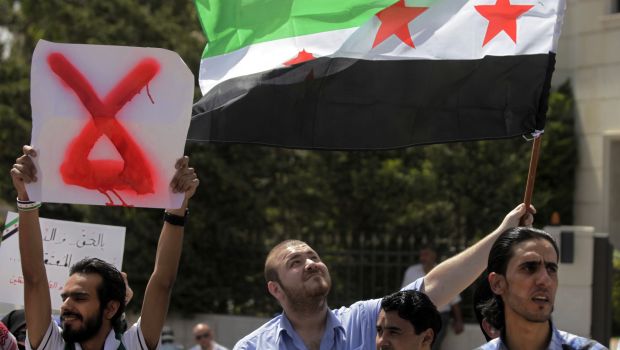If the concerted efforts to drag Iran into negotiations on Syria fail then we will reach the stage where the situation in the country will be decided by a long and costly “war of attrition” between the Assad regime—backed by Iran—and the Syrian rebels—backed by the West and the Arab world.
In that scenario, the Arab World and the West would continue to seek to undermine and destabilize the foundations of the Islamic Republic through its involvement in Syria. They could even go further than this and seek to prolong the conflict, providing the Syrian opposition with military support that maintains a balance of power on the ground and prevents any one party from achieving a decisive victory against the other. In any case, it is clear that Iran’s foreign policy is flagging.
Since the emergence of its “Islamic Republic,” Iran has spent more than 100 billion US dollars on its controversial nuclear program. If we add up the costs of the Iran–Iraq War, the numerous conflicts it funded in Lebanon and along the Israeli border, and the expenses to keep Syrian President Bashar Al-Assad in power, particularly over the past three years, the total will certainly be in the tens of billions of dollars. If we also count the formation and arming of Iraqi and Lebanese militias, the purchase of arms for the Syrian regime, the financing of the Syrian economy during its collapse due to the war, then it is clear just how much Iran is expending on pursuing regional hegemony. In that case, a policy of attrition would have dire consequences for the social conditions of the Iranian people, the vast majority of whom have seen a steady decline in the standard of living over the past decades.
For these reasons, Tehran will be very reluctant, for the most part, to throw itself into this trap—a war with uncertain results which Iran could not withdraw from without losing morale nor continue without making sacrifices. Iran’s prospects for victory would become increasingly small. Winning the war would be not only impossible, but also meaningless when the entire country is turned to ruins.
Tehran cannot continue to defy the West and threaten its interests and the interests of its allies while simultaneously negotiating with the West and seeking rapprochement. Finally, and this is the most important point—Tehran simply cannot do whatever it wants. It can’t break the will of the Syrian people and impose its demands on them. A serious crisis between the region’s Sunnis and Shi’ites would not be in its favor but would further worsen the image of Islam and Muslims across the world.
Iran is a strong and important Middle East state. Its ruling religious elite has demonstrated considerable regional and international influence, and its people have shown that they can be patient in the face of international sanctions. But none of this is enough to change the course of history and break the will of peoples who have chosen liberation and emancipation.
Iran is exhausted and overstrained. It is in Iran’s own interest to work on political solutions that aren’t limited to safeguarding the interests of the Tehran regime alone. Rather, it should work for the good of Iranians, Iraqis, Syrians, Lebanese and all the people in the region who are under threat. Otherwise madness will reign, and the consequences will be most dire for those who first set us on this dangerous course.
The counterpoint to this article can be read here.

while the costs are no doubt great, the American people are not willing to outspend Tehran. We’re 17 trillion USD in debt. Your argument reeks of wishful thinking.
People had cashed in big time raising the banner that they are working for the benefit of the Syrian people. They made their living on the crisis and hoped to catch a big fish in troubled waters. Now they trun into visionary for those who can’t able to see in a clear daylight. Sometimes you have to see the end to make sense what this is all about.